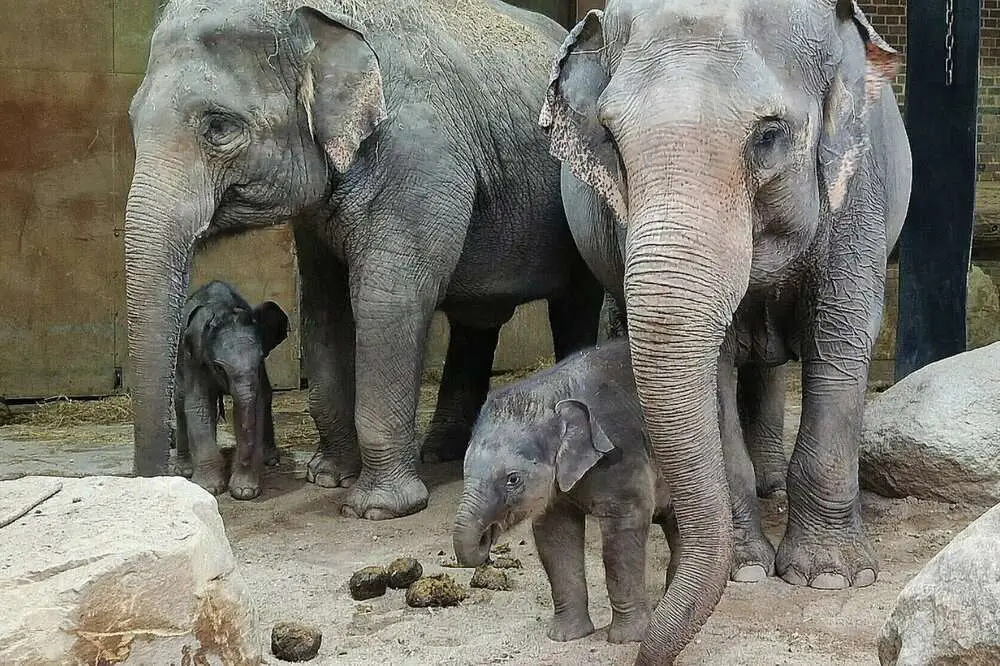The video shows the moment two Asian elephant calves enjoy some adorable water play along with their two mums at a zoo in Germany.
Four-month-old Akito was overjoyed when he got a new friend after the Leipzig Zoo, in Germany, welcomed a newborn baby elephant to parents Thuza and Voi Nam on the night of 21st December 2022.
At the time, the zoo staff were delighted with the second breeding success of the endangered Asian elephants this year.
Senior curator Johannes Pfleiderer said in a statement: “Now it is important to bring the entire herd together again and for the two young animals to develop healthily.”
The new video showing the two of them taking a dip together along with their mums in the pool of the elephant temple Ganesha Mandir warmed visitors’ hearts nearly a month later.
In the cute footage, Akito and his now four-weeks-old female friend can be seen playing and spraying water all over themselves with their trunks.
Tempted by their water play, their mums Pantha and Thuza, joined them, before they all continued their fun on the sand.
Leipzig Zoo said in a statement obtained by Newsflash from Leipzig Zoo on Monday, 16th January: “The two elephant cubs at Leipzig Zoo are almost four months and four weeks old.
“Little Akito is now very self-confident and bravely ventures into the bathing pool in the elephant enclosure Ganesha Mandir.
“Thuza’s little daughter, on the other hand, is not even a month old and is accordingly cautious.
“Always at her mother’s side, she gets up close and personal with the wet element.”
Asian elephants, which are the largest living land animals in Asia, are listed as ‘endangered’ on IUCN’s Red List of Threatened Species as their populations have declined by at least 50 per cent over the last century.

The main reasons for their endangered status are primarily habitat loss, habitat degradation, fragmentation and poaching.



